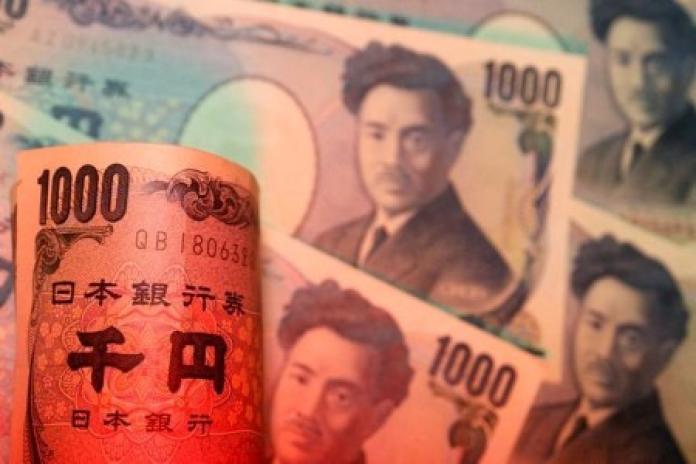A look at the day ahead in U.S. and global markets from Mike Dolan.
A frenetic weekend of political and policy action has injected significant two-way volatility into world markets, which are also now on high alert for signs the U.S. Federal Reserve may ease its foot off the interest rate brake.
Talk of a change of tack emerged late Friday amid reports the Fed was minded to reduce the size of its rate hikes after another 75 basis point rise next week, then pausing the tightening campaign some time next year. The reports triggered a recoil in U.S. bond yields from their highest levels in over a decade, while futures pricing for a peak Fed 'terminal rate' of more than 5% next year fell back by more than 10bp to less than 4.90% on Monday.
But that was just the start of the gyrations across currencies, bonds and stocks everywhere.
A surge in Japan's ailing yen from 32-year lows later on Friday, amid reports of out-of-hours Bank of Japan intervention in New York, saw a peak-to-trough drop in dollar/yen of almost 4%. There were wild swings again on Monday amid suspicion of further BoJ sales, even though officials refused to confirm the action. With the dollar back up above 149 on Monday, the scene is set for prolonged battle as the BoJ policy meeting this week is unlikely to veer from the ultra-loose monetary stance that's been undermining the currency as the Fed and others raise rates.
A weekend of political twists from Beijing to London only added to edgy market on Monday.
China leadership China's Xi Jinping secured a precedent-breaking third leadership term on Sunday and introduced a top governing body stacked with loyalists.
But the shape of the leadership team saw Hong Kong stocks slide 6% to 13-year lows and China's onshore yuan stumbled to its weakest level in 15 years, with Xi's picks heightening fears that economic growth will be sacrificed for ideology-driven policies.
Hong Kong's Hang Seng index (.HSI) has now underperformed MSCI's broadest global stock index by almost 50% over two years.
Delayed Chinese economic releases did little to calm to markets, with better-than-forecast third-quarter growth and September industry numbers offset by disappointing retail and housing readouts. Oil prices also slipped down as the sweep of China data disappointed.
London then added to the volatile political picture on Sunday as weeks of turmoil within the UK government were given an added twist when former Prime Minister Boris Johnson pulled out of the race to succeed ousted Liz Truss.
Sterling and British bonds firmed amid relief the country may now avoid another divisive leadership battle and yet another potential U-turn on fiscal policy. Former finance minister Rishi Sunak is widely expected to be the new PM, with reports that standing finance minister Jeremy Hunt is set to quash even more tax relief plans to steady the country's finances.
But much like China's latest economic health check, European business survey readings for this month were another dark cloud for the world economy in general just as the European Central Bank is set to raise interest rates again this week.
Although European stocks were marginally higher on Monday, U.S. equity futures were in the red again - with mega-cap U.S. tech firms due to report third-quarter earnings over the next couple of days. Microsoft, Alphabet, Meta and Apple are all due.











